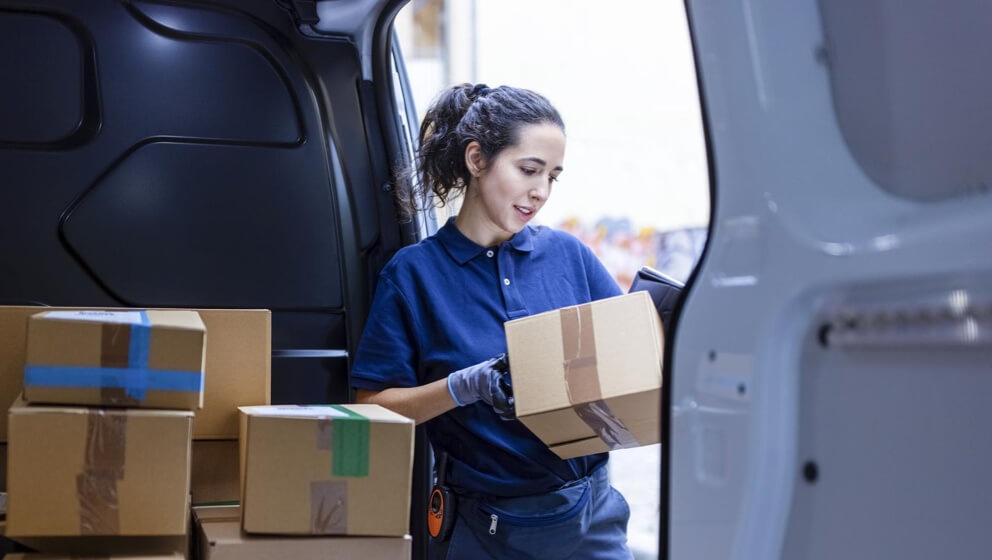"We realized that HVO is the right path towards emission reductions. Implementation is possible today with no modifications required."
Construction equipment manufacturer since
73 years
Immediate
emission reduction through alternative fuels
First fill and infrastructure
with Neste MY
Liebherr: "Our focus is on safety, cost-effectiveness and environmental sustainability in all areas."
Liebherr Group is a family-run technology company with a broadly diversified product range. The company is one of the largest manufacturers of construction equipment in the world. Furthermore, Liebherr Group also offers high-quality, highly functional products and services in many other areas. The group currently comprises over 140 companies on all continents and employed more than 49,000 people in 2021. Liebherr was founded in Kirchdorf an der Iller in southern Germany in 1949. Since then, the company's employees have consistently pursued the goal of offering customers powerful and sophisticated solutions and contributing to technological advancement. Corporate responsibility has been one of the principles of the Liebherr Group for decades. Products, processes and infrastructure are designed to be as resource-efficient as possible. Alternative fuels that produce lower emissions are of key importance. Liebherr's plant in Ehingen has now started using HVO100. In addition to the first fuel of the products prior to delivery, it is also used in the plant's systems and operational infrastructure. The objective? “We intend to use HVO wherever it is legally allowed and where we can guarantee a stable supply through suppliers”, says Phillip Federle, Department Manager for Liebherr's Mobile Cranes.

Liebherr's reasons for choosing Neste MY Renewable Diesel (HVO100):
- Environmental impact: HVO100 provides a real contribution to reducing emissions
- The implementation is possible already today: HVO can be used without modifications in most existing machines powered by a combustion engine
- Customer-focus: HVO offers customers the option of reducing CO² emissions with their existing equipment
We realized that HVO is the right path towards emission reductions. Implementation is possible today with no modifications required.
Phillip Federle, Department Manager, Mobile Cranes Liebherr-Werk Ehingen GmbH
The solution
Protecting the environment is of particular importance to Liebherr. What can you tell us about corporate responsibility in your organization?
Corporate responsibility has been one of the principles of Liebherr Group for decades and is part of our core values. As an independent family-run company with a long-term strategic focus, Liebherr is aware of its responsibilities. Our products, processes and the infrastructure are designed to be as resource-efficient as possible. Our focus is on safety, cost-effectiveness and environmental sustainability in all areas.
Why did Liebherr choose HVO/renewable diesel as a fuel?
We realized that HVO100 is the right path towards emission reductions over the short term. Implementation is possible today with no modifications required. The machines do not have to be rebuilt, developed, replaced or retrofitted, but can continue to operate normally with HVO fuel. Furthermore, HVO can be used neat or blended in any ratio with fossil diesel, so the switch is quick and easy. We also want to send a clear signal that solutions already exist today and there is no need to wait. All it takes is for someone to start using them.
Are electrification or biodiesel alternatives?
Electrification and biodiesel are still alternatives for Liebherr, we do not put any solution aside. The right way for us and our extensive range of products for a wide variety of industries and markets is to remain fundamentally open to a variety of technologies. At Liebherr, we give thorough consideration to all drive technologies that can help reduce emissions, either immediately or in the longer term. Alternative fuels that cause lower emissions are obviously of great interest in this context. Some of these fuels, including biodiesel, are currently difficult to obtain on the market. Furthermore, the quality of HVO100 is higher compared to biodiesel.
Electrification as a power source requires a different infrastructure, which would need to be developed first. Liebherr is working on electric vehicles for some applications. Many of them are also already successfully being used on construction sites. However, from an environmental perspective, electrification is not practical or possible for all machines, types of use and locations.
E-Fuels are currently not yet available in very large quantities and only at extremely high prices. According to our current knowledge, their potential for reducing CO² emissions is similar to that of HVO100 made from waste.

What does Liebherr's choice of Neste MY Renewable Diesel mean in practice?
We started using Neste MY at the Liebherr plant in Ehingen, Germany, and are now expanding its use to other locations. For example, the Liebherr plant in Kirchdorf, which produces hydraulic excavators, has now also adopted this fuel. We intend to use HVO100 wherever legally allowed to do so and with the possibility to ensure a stable fuel supply. This not only applies to the fuel we put in our products before delivery, but also, wherever possible, to our factory and operational infrastructure.
How important is the use of Neste MY for your customers?
As Liebherr, we have a responsibility towards customers and the environment. We offer an extensive range of different machines and serve a broad spectrum of customers. We have customers who have already switched to HVO, but also customers who prefer other fuels or even completely different drive technologies. There are many reasons for this. In some cases, the fact that other vehicles in their fleets cannot or may not use HVO stands in the way of a switch across the board. The availability of fuel at public filling stations often plays a part in the decision. Many customers are dependent on the public supply infrastructure and need to take this into account in their decision-making. Our customers are always free to choose the fuel that best suits their individual machine and type of use.
How did the switch itself go?
So far, the switch has not led to any technical problems. To ensure a smooth process, we obviously tested the fuel extensively beforehand: at our engine plant in Bulle in Switzerland, here at our production site for mobile and crawler cranes in Ehingen, Germany, and in operational use with customers.
What have the tests to assess the use of Neste MY for your machines revealed?
There are measurable differences that demonstrate the many advantages of this fuel: the volumetric consumption might be a little higher, but the fuel is more resistant to low temperatures and also produces much lower GHG emissions compared to fossil diesel. Both soot in older vehicles without particle filters and NOx emissions decrease further when HVO100 is used.
All feedback received from drivers has been absolutely positive. The machines deliver the same performance as when using fossil diesel fuel.
And how have customers responded to your choice of Neste MY?
Many customers are pleased that we objectively and intensively engage with alternative drive technologies in a thorough and completely open-minded manner. Several customers and partners have endorsed our policy of looking at other possibilities rather than blindly following the general trend. HVO100 was deployed as a result of our open approach to various technologies, and we chose it to start reducing emissions already today. Another benefit is that our customers can continue using their existing machinery without any restrictions, and no effort is required to replace or convert machines. That obviously appeals to many customers.
Is HVO just a bridging technology for them or do they see it as a long-term solution?
We will continue to observe and constantly re-evaluate all technologies in an open and objective manner. The extensive range of products made by Liebherr requires us to do so. Because only then can we meet the needs of our customers and respond to environmental requirements in the best possible way. Finding suitable alternatives for large, energy-intensive and mobile devices is extremely challenging. In these cases, alternative fuels are currently of great interest. Today, HVO100 is an excellent alternative as it can be used directly and without much effort in most existing machines with a diesel engine, and also contributes significantly to reducing emissions.
Learn more about Neste MY Renewable Diesel

Questions? Get answers

Customer stories

